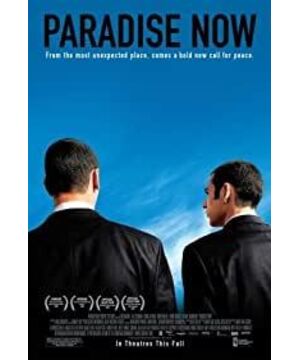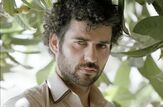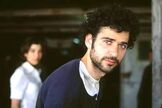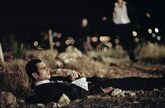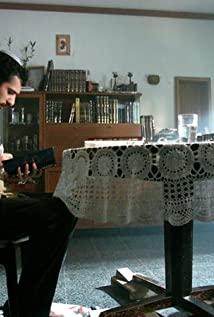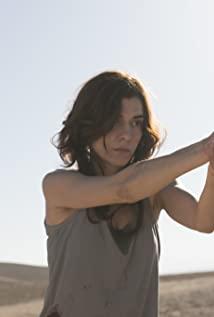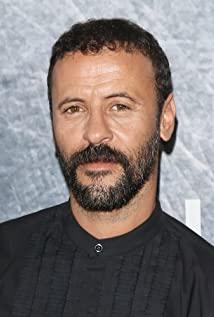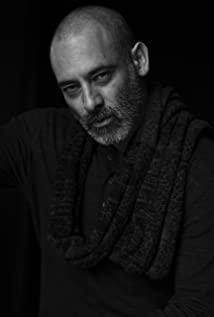- Watch "PARADISE NOW"
Director: Hany Abu-Assad
Starring: Kais Nashef Ali Suliman Lubna Azabal Amer Hlehel Released
Year: 2005
Movie Name: Paradise Now
Language: Arabic
Country/Region of the film: France Germany Netherlands Palestine
imdb number: tt0445620
AKA: Paradise
knew long ago that it was a film about human bombs, but never thought it was made this way. The twists and turns of the story lead to a lot of thought. Unlike a simple explosion, there is nothing but shock.
The story begins with two bearded young men arguing with a customer at a garage over whether the bumper is skewed. In the last breath, Carley smashed the bumper and the two were fired by the boss. The daughter of the hero Abu Azan, Suha, is always here to fix her broken car, and Saeed has had a crush on her for a long time. However, soon, the pair of friends who grew up together were tasked with bombing a party with a human bomb. The time was tight and the action was due the next day, so that night, Said couldn't sleep. The monotonous sound of crickets and the dripping water from the faucet lingered in his ears. At four in the morning, he went to Suha's house to return the keys. The two talked about going to the movies, but Said didn't watch them, only burned the cinema when he was ten years old. The two of them are people living in different classes. Said's love for her contains his reverence for her father, so he is religious, and Suha supports fighting for justice, not retribution. The ideological differences between the two were one of the factors that ultimately led to the inability to combine.
The next day, Saeed and Kare went to the brick factory gathering place to take the oath before leaving, and here is an interesting detail. Carre showed some patriotic enthusiasm in front of the camera, but was accused of something wrong with the camera, so he did it all over again. Carre suddenly said: "Mom, I saw a filter in Moda, and Bikaner was It's cheap there, don't forget it next time! It's hilarious and puts a little humour in the suffocating air, but it just happens to reflect perhaps the most mundane things one would say to a loved one before dying, too formal rather than heartfelt , appears false. The two men finished their face, took a shower, put on new clothes and tied up the bomb, and set off. When the car reached the demarcation line, Israeli soldiers fired fire, and the two separated. Kare returned to the base and defused the bomb, but Said walked down the road with the bomb tied.
The next scene of finding is also very interesting, always missed, missed. The leaders of the base thought that Said might betray, so they evacuated the brick factory, but Said returned to the brick factory, Kare went to the Said's house again, and Said went to the Kare's house... This process, Of course, the audience is also suffering, because the protagonist is strapped with a bomb, which may be triggered at any time, but no one can guess when the director will arrange for it to detonate. So the heart is hanging, when Said wipes the sweat from his stomach in the toilet, the audience is actually sweating.
Said returns to the garage to meet Suha - her car is broken again, but his watch is crushed during the repair. Said said it was okay, a person who ignores death, these are all things outside the body, but Suha didn't care and took him to the watch repair shop. Said tries to keep his distance from the people he loves in case of an accident, yet desperately wants to be with them. In the car, he finally kisses Suha. The funny thing is that they saw the boss in the watch repair shop selling the oath tapes of those who died heroically before they left, and said that the tapes of traitors and spies were the best sellers, especially female spies, because they reversed history. A very absurd thing. This made Suha extremely dissatisfied, and at this time, she had a conflict with Said. The main reason is that the two people have very different perspectives and positions on war and resistance. Dissatisfied with his identity and status, Saeed's father was executed for being a traitor when he was ten years old, and he sought to regain his reputation through resistance and revenge for the repression. And Suha was very dissatisfied with his idea. When Kare found her and told her the truth, the two had a conversation on their way to Saeed's father's grave to find him. This dialogue is a good expression of her thoughts: Is the so-called struggle to make the victim become the executioner? Is it possible to do anything for Allah? And what Allah is, it just lives in your head. Carre said: I would rather have heaven in my head than live in hell. But in the end, this conversation worked out a lot for Kalec. Although at first we see Kare red-faced before his death, smug about wearing new clothes, and happy to be called a hero for going to heaven in an hour, he is eventually saved by Suha.
In the end, both Said and Kare returned to the base to have a conversation with the leaders. Kare gave up being a body bomb again, and Said had no turning back. He told the leader that he had lived in a refugee camp since he was a child, and his father was executed for being a traitor when he was ten years old. He was born with the kind of rebellion, but he was willing to sacrifice for honor and to escape such a poor life. Now we understand that Saeed is more obsessive than Kalé's previous stupidity and dullness. His choices are related to his life, and no one can stop him, including Suha and his mother. What is so thought-provoking about the film is that this film not only leads the protagonist to death, but also casts a heavy bomb on the Palestinian-Israeli country, making those who are still crazy about the war present a state of excitement or calm. Because its propaganda of human nature is stronger than its political stance, the reason set for the "body bomb" has caused a lot of controversy. Although in the film it stands on the political standpoint of Pakistan and fights for poverty and oppression, its It is an "act of terrorism" in itself. If the "Oscar", the highest award in the global film industry, awards it an award, it is a public acknowledgement that the behavior in the film is globally recognized - so it is not difficult to imagine that it did not win an award. reason.
"It's not a footnote for or against violence, what we're trying to do is humanize all extremists," said co-producer Bello Beye. The director's position is also very clear, because the director himself is an Israeli living in the Netherlands, and he went to shoot Palestine, in order to make the film human, so that Israel can understand Palestine, so that the two sides can be relieved in the war. . However, on both sides of the war, their understanding of peace has always been inconsistent. If you just want to influence them with a film, wake up a large number of people, and change the political position of the country, it is impossible. Many people believe that if the film expresses such horror in an artistic way and makes people feel sympathetic to it, then the film is actually encouraging this kind of behavior itself, which is obviously not desirable. So it's inevitable that it will be controversial, not to mention winning.
Many countries hate terrorism, especially since this kind of behavior directly destroys the families and lives of innocent people and puts them in long-term pain. The director's pure good intentions are obviously easy to be misunderstood. He calls for peace, In order to show the inner pain of the characters, or to show the hidden pain of a nation, he only described the process when he highlighted the humanization aspect, which enhanced the characterization of the characters and did not face the consequences of the terrorist acts. It was precisely the part that caused people suffering that he ignored. Of course, the audience couldn't understand that as a "human bomb", he could have human nature and moral excuses, but what about the victims, don't they have souls? ?
In the film, the devotion to Allah leads to the numbness of the souls of many people, which seems to be a pity and a pity. It is difficult for them to get rid of them except to use extreme behavior to gain honorary recognition, and that kind of material poverty directly leads to their spiritual hardship and ignorance. There is a sentence in the film: Fighting for freedom means fighting for it. Death just reflects the ignorance of the Palestinian people represented by Said. We can express regret at Said's heroic death, but we can understand the chaos and clamor in his inner world. He couldn't bear it, which means he wanted to get rid of it very early. In a sense, his heroism is a kind of escape. Suha is the daughter of a national hero, so she is inevitably higher in political consciousness than others. In her eyes, their death-defying behavior is undoubtedly pathetic and ridiculous, but with her help, can she be able to turn the tide? She may have rescued Kalec, but it doesn't mean that Kalec just listened to her side of the story. Maybe he was so tormented by the delay in the process that he could no longer face justice. Maybe he dreamed that Allah had treated him Said to live well. Although there are not many characters, the concepts reflected in their bodies and souls are very different. This may be one of the questions the film itself explores.
However, Hanni-Abu Assad offered me a different interpretation when we were accustomed to the subject of terrorism in films, and it was obviously refreshing and memorable.
(Interlude: I was watching this video in a multimedia classroom, and the ending was stuck five minutes before the end, so I didn’t watch the ending. This made me very anxious, and it was about to close at that time, so I had to come out. Call a friend, He watched more discs than I did, so I asked him to know. Sure enough, he told me the ending, and Said was still going to die, killing a lot of people. I said it was stupid, and he said it wasn't stupid either. Maybe, Everyone has their own way, and no one can stop anyone because you can't replace him.)
September 27
View more about Paradise Now reviews


